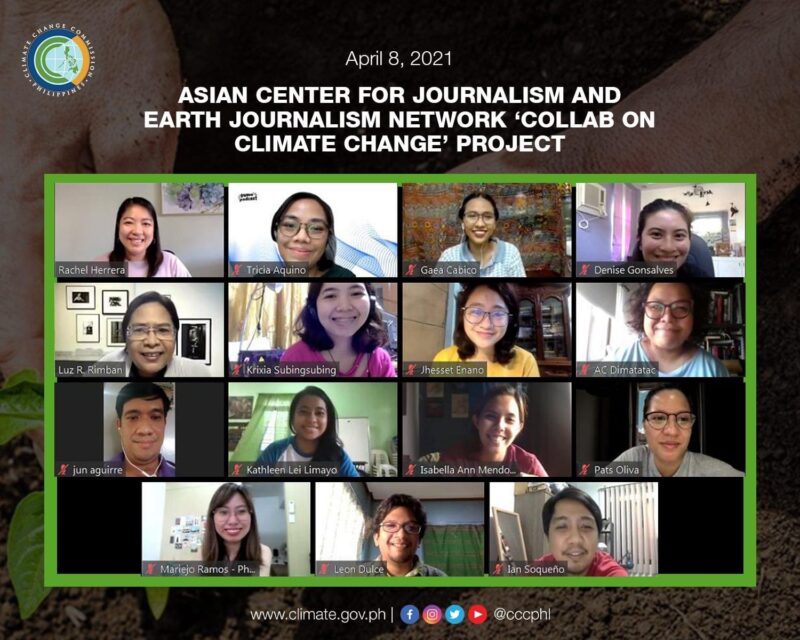Rachel Anne S. Herrera, the commissioner of the Philippines’ Climate Change Commission, recently spoke to a group of climate change journalism fellows at Ateneo de Manila University’s Asian Center for Journalism (ACFJ), an EJN media grantee under our Asia-Pacific project.
The presentation was part of a climate change course launched on March 15 by ACFJ for 15 journalists and climate communicators joining from various organizations. The eight-week experience is designed to ground participants’ knowledge in the science of climate change and introduce them to new methods for communicating its effects to the public. This lecture, which took place on April 8, was held so participants could learn more information about the Philippine government’s response to climate change, including strategies, programs, methodologies and more.
In her talk, Herrera emphasized the influential role of the media in raising awareness about the alarming issue of climate change in the country. She particularly highlighted the importance of explaining scientific concepts to a broad audience, shaping opinions and engaging the public in taking urgent and ambitious climate action.
“The government welcomes this collaboration … where we can convey some of the work that we are doing and to seek your help to support us in conveying the needed messaging to more Filipinos about climate change,” Herrera said during the lecture. “This pandemic has taught us that we could only achieve great things with unity. We need to have a common objective, and we need to reach out in terms of supporting those who are the most vulnerable.”
This course from ACFJ is the first of its kind in the Philippines, and taps the expertise of scientists, science communicators and media experts from ACFJ, EJN and those like Herrera from the national government. Throughout the course, participants will use the lectures and course material to produce a deep, well-researched story plan. At the end of the course, an online reporting festival will be held, featuring the published stories of the fellows and sharing them with the public.
With this aim in mind, Herrera tackled a wide range of topics related to climate change in her lecture, including global partnerships such as the Paris Agreement, and programs within the Philippines, such as the Climate Change Assessment reports and the country’s adaptation strategies.
As the only woman commissioner of the CCC, she recognized the importance of accountability and transparency to ensure that any climate actions serve the communities that need it most. She also encouraged the participating journalists to continue their work covering climate change issues.
“The power to act is in our hands, so whether you’re a journalist, or from the government, or a student or a teacher, we must keep engaging everyone,” Herrera said.
